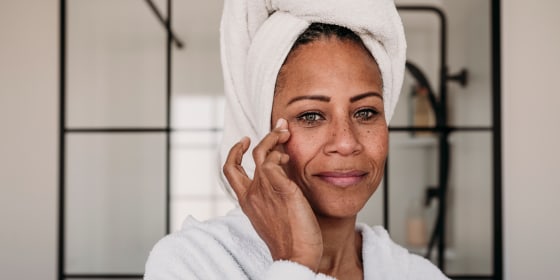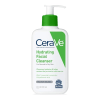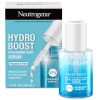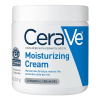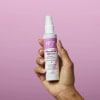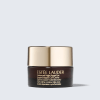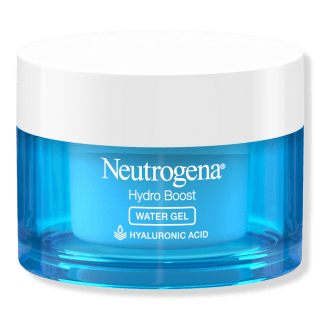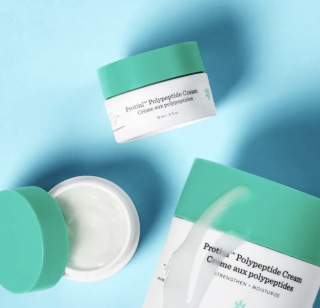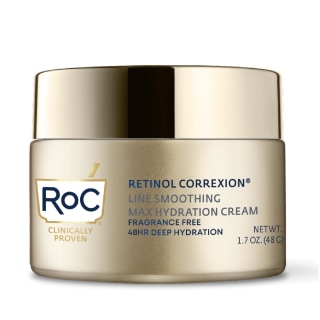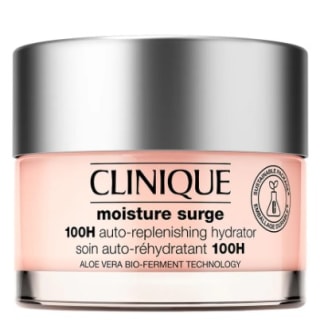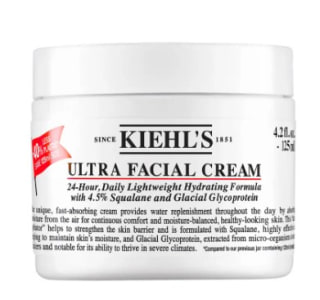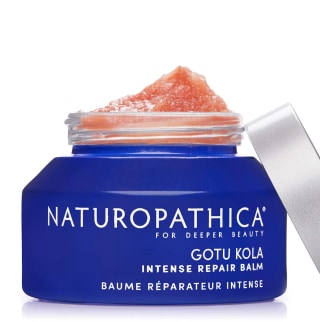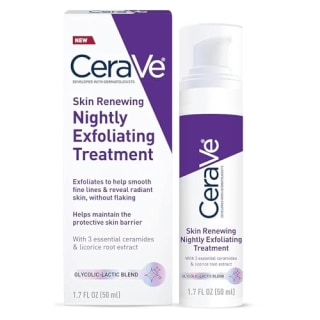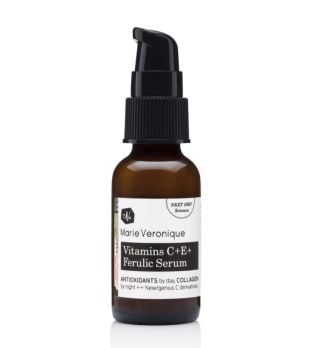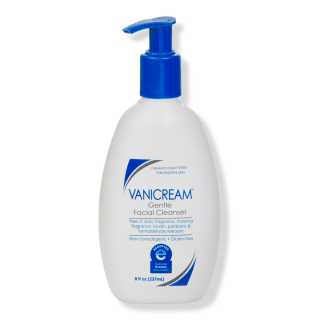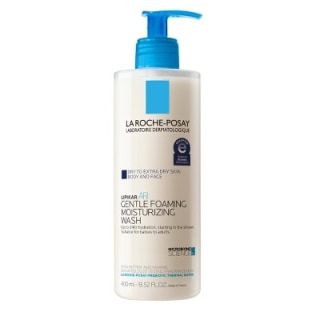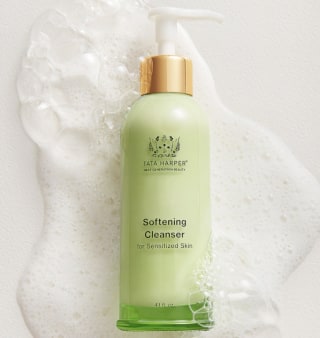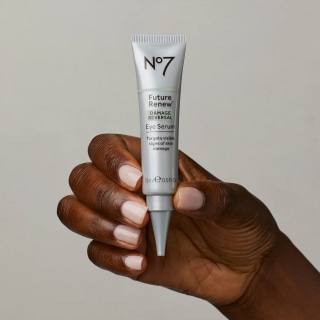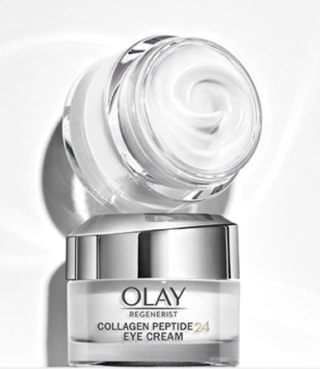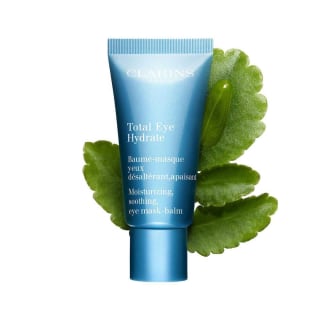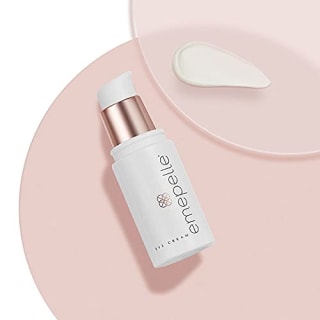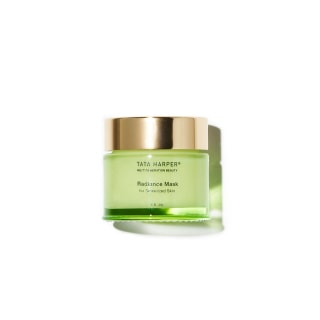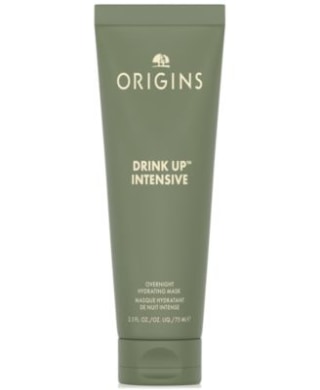Whether you’re going through menopause, starting perimenopause or simply awaiting these hormonal changes, we all know that menopause is a time of change.
From hot flashes to moodiness to sleep disturbances, your body goes through a lot during this transitional period. But did you know that your skin can be just as affected as the rest of your body?
To get the full lowdown, Shop TODAY tapped several pros who know the ins and outs of menopause and hormones. They’re explaining what happens biologically when your skin changes during menopause, along with what your skin needs most from head to toe.
What happens to skin during menopause?
To fully grasp what happens to skin during menopause, it’s important to understand the connection between skin and sex hormones.
“Thanks to fluctuating hormones, menopause brings about a range of changes to your body, including your skin. Those skin changes happen faster during this time than any normal aging changes (it’s estimated that in the first five years of menopause, 30% of the collagen in the skin is lost!),” says Sally Mueller, a co-founder of the modern menopause brand Womaness, which includes products for skin, body, sexual wellness, feminine care and supplements.
Estrogen and progesterone are two sex hormones that help our skin before menopause
Physician and author Dr. Keira Barr notes that estrogen, one sex hormone, is key for the normal functioning of skin as well as blood vessels, hair follicles, oil glands and pigment-producing cells called melanocytes.
Estrogen also plays a key role in collagen production, increased skin thickness, improving skin barrier function, maintaining skin hydration, reducing sebaceous oil gland activity and improved wound healing.
Apart from estrogen, progesterone — a sex hormone released by the ovaries — contributes to skin elasticity and pigmentation, as well as increased circulation. It’s also involved in sebaceous gland activity.
Sex hormones decline during menopause, causing several side effects
Barr, who's also a dual board-certified dermatologist and expert in menopause and hormones, says that sex hormones decline and directly affect the skin during menopause, leading to a decrease in sebum and immune function and significant changes in the skin’s surface.
This means that your skin can become very dry, sensitive and susceptible to things like irritation, inflammation and rashes.
“At the same time, we start losing our ability to make hyaluronic acid, which is important for maintaining our skin’s hydration. This causes us to lose that youthful glow. As a result, flakiness, itchiness, and a dull complexion can occur,” Dr. Mona Foad, a board-certified dermatologist at MONA Dermatology, says.
Per Michelle Jacobs, a co-founder of Womaness, the “drastic collagen reduction” during menopause can result in skin “thinning, fine lines and wrinkles, a dull or uneven appearance, and increased sensitivity.
“In addition, hormonal changes can create hyperpigmentation or dark spots,” Jacobs says.
Hot flashes are often associated with menopause and this symptom can create its own set of skin care side effects.
“If you’re experiencing hot flashes, they can give your skin a temporary redness or flushed appearance. Once you’re officially in menopause, these issues do ease up, but they won’t entirely go away,” Jacobs says.
Elastin, another protein similar to collagen, helps keep skin firm. As it declines, during menopause, skin begins to change in appearance.
“With the loss of elastin, our skin becomes looser and more wrinkled. In addition, loss of collagen and elastin causes our skin to be thinner, making it more susceptible to damage from environmental factors and more prone to bruising and tearing,” Foad says.
Additional skin care side effects include the following:
- Jowls
- Sagging skin
- Delayed wound healing
- Larger pores
- Acne
What does your skin need during menopause?
Although these changes don’t exactly sound appealing, there are absolutely ways to combat them: namely through changing up your products.
- Hydration, hydration, hydration: “Your hydration needs are now huge, so ingredients that hydrate your dry skin, such as hyaluronic acid and squalane, are essential to take on dryness. Antioxidants like vitamin C and E can help protect your skin from environmental damage and help improve skin tone,” Mueller says, adding that ceramides are another great ingredient.
- Consider your diet: “Staying hydrated is key to supporting your overall skin health. It also helps to look at what you’re eating and drinking. Try adding high-vitamin C foods to your diet to help boost collagen production (think citrus, white potatoes, strawberries, bell peppers) and moderate your alcohol intake, as alcohol is a diuretic that can dry out your skin,” Mueller says. Barr also recommends a diet rich in omega-3 fatty acids, vitamin C and antioxidants to ease inflammation and irritation.
- Gentle ingredients are your friend: Barr says that using gentle, non-foaming, soap-free cleansers can be helpful.
- Don’t forget the SPF: “As always, you should continue to use broad-spectrum SPF to protect against UV damage. And for your best experience, look for applicators that cool on contact or let you spot treat your skin. Your now-sensitive complexion will thank you,” Jacobs says.
Best moisturizers for menopause, according to experts
Tried and true: CeraVe Moisturizing Cream
- Over 100,000 five-star ratings
- Not greasy and gentle on skin
- May want to use with serum
Size: 19 oz. | Active ingredients: Hyaluronic acid, ceramides | Formulation: Cream | Best for: Normal, dry skin
“For menopausal skin, moisturizers that focus on hydration and support the skin’s natural barrier are recommended,” Dr. Liia Ramachandra, CEO of EpiLynx, says, noting that this affordable find is great for this stage of a woman’s life.
Extra hydration: Neutrogena Hydro Boost Hyaluronic Acid Water Gel Moisturizer
- Great for acne-prone skin
- Mixed reviews on scent
Size: 1.7 oz. | Active ingredient: Hyaluronic acid, dimethicone, glycerin | Formulation: Gel | Best for: Dry skin
“This product is fragrance-free and contains a high concentration of hyaluronic acid. It absorbs directly into the skin with no residue,” Dr. Debra Jaliman, a board-certified dermatologist based in New York City says.
"Rich" in emollients: Drunk Elephant Mini Protini Polypeptide Moisturizer
- Vegan and cruelty-free
- Free of fragrances
- Small amount of product for cost
Size: 0.5 oz. | Active ingredients: Signal peptide complex, pygmy waterlily stem cell extract, soybean folic acid ferment extract | Formulation: Cream | Best for: Normal, dry, combination and oily skin
“Using a moisturizer to hydrate the skin and reinforce the skin barrier is important,” Barr says. “Choosing one like this that is rich in emollients in addition to having active ingredients like peptides, amino acids and growth factors is a good choice.”
Added retinol: Retinol Correxion Line Smoothing Max Hydration Cream
- Affordable
- Doesn't feel oily
- Works quickly
- May irritate some skin types
Size: 1.7 oz. | Active ingredient: Retinol | Formulation: Cream | Best for: Dry, mature skin
“Retinol is a retinoid, a derivative of vitamin A that naturally occurs in skin. It removes old, dull skin cells on the surface revealing fresh, new ones in a moisturizing rich formula to prevent dryness,” Dr. Angela Lamb, MD, a board-certified dermatologist based in New York City, says.
For "superior " hydration: Clinique Moisture Surge 100H Auto-Replenishing Hydrator
- Super hydrating
- May burn upon application
Size: 1.7 oz. | Active ingredient: Aloe bio-ferment, hyaluronic acid complex, blend of Vitamins C and E | Formulation: Gel-cream | Best for: Normal, dry, combination and oily
“This one contains hyaluronic acid for superior hydration as well as aloe to soothe the skin. Plus, it’s anti-inflammatory. As we age, our skin gets progressively drier so this product is helpful,” Jaliman says.
Added squalane: Kiehl’s Ultra Facial Cream with Squalane
- Super hydrating
- Can cause breakouts
Size: 4.2 oz. | Active ingredients: Squalane, glycerin | Formulation: Cream | Best for: Normal, dry, combination and oily skin
“Products like Kiehl’s Ultra Facial Cream with Squalane are really liked for their ability to hydrate and plump the skin, thanks to ingredients like ceramides and squalane. These ingredients help in combating the dryness and sensitivity that can come with menopause, supporting the skin’s overall health and appearance,” Ramachandra says.
Formulated with gotu kola: Naturopathica Gotu Kola Intense Repair Balm
- Great for rosacea and eczema
- Mixed reviews on scent
Size: 2.8 oz. | Active ingredients: Gotu kola, candelilla wax, raspberry seed oil | Formulation: Balm | Best for: Dry, red skin
Barr says it’s important to moisturize and soothe menopausal skin with nourishing skin care ingredients. She believes that one of these helpful ingredients is gotu kola, an herb that’s been known to repair veins in the skin and penetrate deep layers. This multi-use balm will cover myriad skin care needs, from your face to your hands and more.
Best serums and oils for menopause, according to experts
Helps brighten skin: CeraVe Skin Renewing Nightly Exfoliating Treatment
- Very moisturizing
- Can irritate skin
Size: 1.7 oz. | Active ingredients: Glycolic acid, lactic acid, hyaluronic acid | Formulation: Gel | Best for: Oily, combination, sensitive, dry and normal skin
“This is great because the active ingredient of glycolic acid is helpful for brightening skin tone. It exfoliates the dead skin cell layer and releases trapped pigmentation, giving the skin back a glow that many of my patients complain fades with menopause,” board-certified dermatologist Dr. Robert Anolik says.
A "gentle" serum: Neutrogena Hydro Boost Hyaluronic Acid Serum
- Very hydrating
- May be sticky
Size: 1 oz. | Active ingredient: Hyaluronic acid | Formulation: Liquid | Best for: Combination, sensitive, dry skin
Anolik applauds this serum, noting that its key ingredient (hyaluronic acid) "serves as a gentle, humectant moisturizer."
"It combats the common concern of rough texture and dryness that comes with menopause," he says.
Formulated with ferulic acid: Marie Veronique Vitamins C+E+Ferulic Serum
- Increases UV protection
- Helps produce collagen
- Splurge item
Size: 1 oz. | Active ingredients: Vitamin C and E, ferulic serum | Formulation: Liquid | Best for: All skin types
Vitamin C has become a cult ingredient, praised for its ability to help the body produce more collagen and to stabilize the collagen you already have. Barr says that this particular serum will bolster your protection against the elements.
“The combination of vitamins C, E and (antioxidant) ferulic acid work synergistically to fight free radicals, DNA damage and increase penetration into the skin cells,” she says.
Best cleansers for menopause, according to experts
A gentle option: CeraVe Hydrating Facial Cleanser
- Hydrating formula
- Lots of positive reviews
- Heavier makeup hard to remove
Size: 8 oz. | Active ingredients: Glycerin, hyaluronic acid | Formulation: Cream cleanser | Best for: Dry skin
“For cleansers specifically designed for menopausal skin, I recommend looking for products that are hydrating and gentle, possibly containing ingredients like hyaluronic acid or ceramides,” Ramachandra says, noting that this is one of her go-tos.
Ideal for sensitive skin: Vanicream Gentle Facial Cleanser
- Gentle formula
- Fragrance-free
- May make skin dry
Size: 8 oz. | Active ingredient: Glycerin | Formulation: Liquid cleanser | Best for: Dry skin
“I recommend this for my patients with super sensitive skin as I have rarely seen a reaction to this,” Jaliman says.
"Infused" with moisturizers: La Roche-Posay Lipikar AP+ Gentle Foaming Moisturizing Wash
- Lathers well
- Can be used on face and body
- National Eczema Association
- Pump may break easily
Size: 13.52 oz. | Active ingredients: Glycerin, niacinamide, shea butter | Formulation: Creamy cleanser | Best for: Sensitive, dry skin
“This non-stripping cleanser is infused with moisturizers and is perfect for the dryer skin of menopause,” Lamb says.
Good for dry skin: Tata Harper Superkind Softening Cleanser
- multitasking formula that soothes, softens and cleanses skin all at once
- Pricey
Size: 4.2 oz. | Active ingredients: Maracuja seed oil, micro-foaming botanical blend, jojoba esters | Formulation: Micro-foaming cream cleanser | Best for: Normal, dry, combination and oily skin
Made for “reactive skin” as it says on Tata Harper’s website, Barr describes this product as “a gentle, creamy cleanser well-suited for dry, sensitive or irritated skin, which is not uncommon in menopause.”
Best eye creams for menopause, according to experts
Infused with peptides: Advanced Night Repair Eye Supercharged Gel-Creme
- Helps with dark circles
- May irritate skin
Size: 0.17 oz. | Active ingredient: Tripeptide, hyaluronic acid | Formulation: Gel-creme | Best for: Dark circles, fine lines, dry skin
“It contains peptides to improve lines as well as hyaluronic acid to hydrate the delicate undereye skin,” Jaliman said.
To "soften" fine lines: No 7 Future Renew Damage Reversal Eye Serum
- Smooths skin under eyes
- Some users say its lackluster
Size: 0.5 oz. | Active ingredients: Glycerin, shea butter | Formulation: Serum | Best for: Fine lines, wrinkles, uneven tone and texture, dryness
“This peptide eye serum has properties that soften the appearance of fine lines and wrinkles,” Lamb says.
Soothes the skin: Olay Regenerist Collagen Peptide 24 Eye Cream
- Very hydrating
- Burns under eyes
Size: 0.5 oz. | Active ingredients: Niacinamide, glycerin | Formulation: Cream | Best for: Combination, dry, oily, mature skin
Ramachandra loves this eye cream that tackles fine lines while soothing and hydrating skin. “Selecting the right eye cream for menopausal skin involves focusing on ingredients and formulas that cater to the unique challenges this period presents, such as increased sensitivity, dryness and a slowdown in cell turnover leading to more pronounced fine lines and wrinkles,” the pro says.
Multiuse product: Clarins Total Eye Hydrate
- Very hydrating
- Softens skin
- Mixed reviews on quality
Size: 0.7 oz. | Active ingredient: Glycerin, furcellaria | Formulation: Cream-gel mask | Best for: Dry skin
“This is a unique product as it can be used a masque for 10 minutes or as a cream. It’s very moisturizing yet gentle,” Jaliman says.
Infused with caffeine: Emepelle Eye Cream
- Helps with wrinkles
- May take time to absorb
Size: 0.5 oz. | Active ingredient: Glycerin, caffeine | Formulation: Cream | Best for: Dark circles, puffiness, fine lines and wrinkles
This cream is packed with under-eye skin helpers like caffeine, antioxidants, peptides and methyl estradiol-propanoate, an ingredient that Barr says “ignites the skin’s estrogen-receptor pathway non-hormonally to treat estrogen-deficient skin by tightening, firming and hydrating the skin without the side effects of estrogen.”
Best cooling mists for menopause, according to experts
Formulated for menopause: No7 Menopause Skincare Instant Cooling Mist
- Offers cooling relief
- Provides short-term results
Size: 3.38 oz. | Active ingredient: Glycerin | Formulation: Mist | Best for: Irritated, mature skin
“This mist is designed to provide cooling relief, which can be particularly beneficial during menopause,” Ramachandra says.
Best masks for menopause, according to experts
Exfoliating: Superkind Radiance Mask
- Adds a glow to skin
- It's a bit expensive
Size: 1 oz. | Active ingredients: Self-neutralizing AHA blend, sugar prebiotic | Formulation: Gel-like mask | Best for: Dry, red and dull skin
“Tata Harper is one of my favorite brands for organic skin care. This is a creamy, gel-like mask with AHAs that replenishes moisture and gently exfoliates to help with the dull skin of menopause,” Lamb says.
Formulated with hyaluronic acid: Drink Up Overnight Hydrating Face Mask
- Convenient way to pamper skin
- A bit greasy, per reviewers
Size: 2.5 oz. | Active ingredients: Glacier water, hyaluronic acid and avocado butter | Formulation: Cream | Best for: Normal and dry skin
“This mask contains hyaluronic acid for hydration and niacinamide, which helps even skin tone,” Jaliman says.
Frequently asked questions
Knowing which skin care ingredients you should avoid during menopause is equally important as understanding what to look for.
To start, try to steer clear of products with too many active ingredients since they can counteract one another and cause irritation. Here are a few things the pros we consulted recommend avoiding:
- Facial scrubs with harsh exfoliants (instead, try alpha hydroxy acids or beta hydroxy acids)
- Fragrant and alcohol-based products
- Ingredients considered harmful like parabens, phthalates, sulfates and artificial colors
Struggling to love the skin you’re in during this unique stage of life? We feel you. But it’s not all doom and gloom.
“I would offer that rather than looking at your skin as ‘letting you down’ or ‘not looking as youthful’ as you might like, consider celebrating what your skin is doing for you,” Barr says. “It’s keeping you safe. It’s protecting you from toxins, infection and pollutants. So, while your skin may not look or feel like it used to, it will always have your back against environmental stressors and will always radiate your glow when you treat it — and yourself — with love and compassion.”
Foad recommends introducing stress-reduction techniques such as meditation, deep breathing exercises or yoga into your routine during this time to “keep stress in check and promote overall well-being.” Exercise can also promote blood circulation and give skin a “more rejuvenated and fresh complexion.”
“Finally, always try to aim for seven to nine hours of sleep to allow your skin to repair and regenerate,” Foad says.
How we chose these products
Menopause can be a stressful time, so we asked a range of dermatologists and menopause experts to share their unbiased recommendations for facial skin care products to add to every step of your routine. From eye creams to serums and everything in between, these are the cream of the crop products, according to experts.
Meet the experts
- Dr. Robert Anolik, MD, is a board-certified dermatologist and a fellow of the American Academy of Dermatology.
- Dr. Keira Barr is a dual board-certified dermatologist and expert in menopause and hormones.
- Dr. Mona Foad is a board-certified dermatologist and the founder/CEO of MONA Dermatology.
- Dr. Debra Jaliman is a board-certified dermatologist based in New York City.
- Michelle Jacobs is a co-founder of the modern menopause brand Womaness, which includes products for skin, body, sexual wellness, feminine care and supplements
- Dr. Angela Lamb, MD, is a board-certified dermatologist based in New York City.
- Sally Mueller is a co-founder of the modern menopause brand Womaness, which includes products for skin, body, sexual wellness, feminine care and supplements
- Dr. Liia Ramachandra, Pharm.D., Ph.D, is a former pharma executive and skin care expert based in Canoga Park, California. She is the CEO and founder of skin care brand Epilynx.

